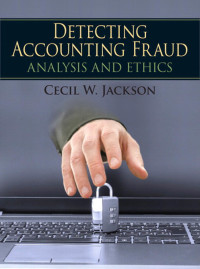Question
SEMINAR 5 - Semester 1 2015 Deegan Topics 8 and 9: Accounting for Corporate Social Responsibilities QUESTION 1 Question 8.4: What does the notion of
SEMINAR 5 - Semester 1 2015
Deegan Topics 8 and 9: Accounting for Corporate Social Responsibilities
QUESTION 1 Question 8.4:
What does the notion of legitimacy and social contract have to do with corporate disclosure policies?
QUESTION 2 Question 8.20:
Assume that you were undertaking a research project that was investigating how a particular adverse environmental event negatively impacted the legitimacy of an organisation. How would you determine that legitimacy was eroded?
QUESTION 3 Question 8.21 (NEW):
Chapter 8 divided Stakeholder Theory into the ethical branch and the managerial branch. Explain the differences between the two branches in terms of the alternative perspectives about when information will, or should, be provided by an organisation.
QUESTION 4 Question 9.2:
What is accountability and what is its relationship to:
Accounting
An organisations responsibilities?
QUESTION 5 Question 9.21:
Of what relevance to the accounting profession is sustainable development?
SEMINAR 6 - Semester 1 2015
Topic 7: Positive accounting theory
QUESTION 1 Question 7.5:
Explain why a decision made in London by members of the International Accounting Standards Board and incorporated within an accounting standard could influence the business operating strategies employed by a manager in Melbourne, Australia.
QUESTION 2 Question 7.6:
If a manager is paid a percentage of profits, does this generate a motive to manipulate profits? Would this be anticipated by principals and, if so, how would principals react to this expectation?
QUESTION 3 Question 7.12:
Would managers who have negotiated debt contracts with accounting-based covenants based around rolling GAAP be relatively more likely to lobby an accounting standard-setter about a proposed accounting standard than would a manager from a firm who has negotiated accounting-based debt covenants that use frozen GAAP. Why or why not? Illustrate using AASB2 Share Based Payments and assume that it is the year 2003.
QUESTION 4 Question 7.17:
If senior managers within a company were rewarded by way of accounting-based bonus plans then would they, or the owners/shareholders (or both), prefer the use of conservative accounting methods? Explain the reasoning for your answer.
QUESTION 5 - Question 10.22
Accepted assumptions about market efficiency mean that it is the information content of disclosure, and not the form of the disclosure, that is valued by the market. Therefore it should not matter whether information is disclosed within the notes to the financial statements, or in the financial statements themselves. If this is true, then why would managers care if something such as a lease liability is disclosed only in the notes, or included within the liabilities disclosed within the balance sheet?
Step by Step Solution
There are 3 Steps involved in it
Step: 1

Get Instant Access to Expert-Tailored Solutions
See step-by-step solutions with expert insights and AI powered tools for academic success
Step: 2

Step: 3

Ace Your Homework with AI
Get the answers you need in no time with our AI-driven, step-by-step assistance
Get Started


